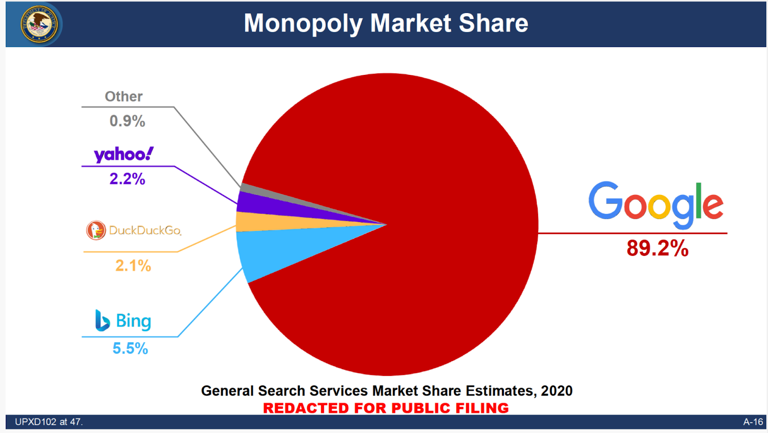Over-the-Counter Birth Control: A Post-Roe Game Changer?

Table of Contents
Increased Access and Convenience
The shift towards over-the-counter birth control offers significant advantages in terms of access and convenience, particularly for those previously facing significant barriers.
Geographic Barriers
For many women, especially those in rural areas or those lacking reliable transportation, accessing healthcare services can be a major hurdle. Over-the-counter birth control directly addresses this issue.
- Reduced travel costs and time: Eliminating the need for appointments and travel to clinics saves both money and valuable time.
- Increased accessibility for marginalized communities: This is particularly beneficial for low-income individuals, those without cars, and those living in areas with limited healthcare infrastructure. This increased contraceptive access could significantly improve reproductive health outcomes for these underserved populations.
- Improved convenience for busy schedules: The ability to purchase birth control at a convenient time and location, such as a local pharmacy, improves compliance and reduces scheduling conflicts.
Cost Considerations
Affordability is a critical factor influencing birth control access. While OTC birth control may offer cost savings compared to prescription methods, the overall financial impact depends on several factors.
- Potential cost savings: OTC options may eliminate doctor's visit fees and potentially reduce the cost of the medication itself, although this can vary depending on the specific product and insurance coverage.
- Impact of insurance coverage on OTC prices: Insurance companies' willingness to cover OTC birth control will significantly influence affordability. Currently, the extent of this coverage varies widely across different plans.
- Comparison of costs between different contraceptive methods: The cost of different OTC birth control options will vary, and individuals need to be aware of price differences to make informed choices.
Privacy and Confidentiality
Seeking birth control can be a sensitive issue for many, and the current system sometimes involves a degree of personal exposure. OTC birth control offers a solution.
- Reduced stigma associated with seeking birth control: Purchasing birth control privately eliminates the need for potentially embarrassing conversations with healthcare providers or pharmacists.
- Greater autonomy over personal reproductive decisions: Women gain greater control over their reproductive health choices without needing third-party approval or involvement.
- Confidential purchasing options: The ability to purchase discreetly protects personal information and allows for greater privacy.
Potential Health Implications and Safety Concerns
While increased access is beneficial, the shift to OTC birth control also raises important health implications and safety concerns that require careful consideration.
Self-Selection and Misinformation
The lack of direct medical guidance when choosing OTC birth control raises concerns about self-selection and the potential for misinformation.
- Importance of accurate information and education: Public health campaigns and readily available, accurate information are critical to ensure individuals make informed choices. This includes information about efficacy, potential side effects, and correct usage.
- Risk of incorrect usage leading to unintended pregnancy: Misuse or inappropriate self-selection of birth control methods could lead to unintended pregnancies, highlighting the need for comprehensive education.
- Role of telehealth and online resources: Telehealth services and reliable online resources can play a crucial role in providing guidance and support for individuals choosing OTC birth control.
Access to Comprehensive Healthcare
The availability of OTC birth control should not replace the importance of regular access to comprehensive reproductive healthcare.
- Need for continued access to gynecological exams: Regular check-ups are essential for maintaining reproductive health, detecting potential problems early, and ensuring the correct method is being used.
- Importance of addressing underlying health conditions: Certain pre-existing health conditions may contraindicate the use of specific birth control methods, emphasizing the need for medical consultation.
- Need for ongoing reproductive health counseling: Ongoing counseling is vital to address questions, discuss concerns, and ensure individuals are making informed decisions about their reproductive health.
Medication Interactions and Contraindications
It’s vital to be aware of potential interactions between OTC birth control and other medications or pre-existing health conditions.
- Importance of understanding potential contraindications: Certain health conditions or medications can interact negatively with some birth control methods.
- The need for proper medical consultation in certain cases: Individuals should consult a healthcare professional before using OTC birth control, especially if they have pre-existing health conditions or are taking other medications.
- Resources for checking medication interactions: Reliable online resources and pharmacists can assist in checking for potential medication interactions.
The Role of Policy and Regulation
The successful integration of OTC birth control requires thoughtful consideration of policy and regulation at both the federal and state levels.
FDA Approval and Regulation
The Food and Drug Administration (FDA) plays a critical role in ensuring the safety and efficacy of OTC birth control.
- Ensuring product safety and efficacy: The rigorous FDA approval process is crucial in guaranteeing the safety and effectiveness of OTC birth control methods.
- Role of ongoing monitoring and reporting of adverse events: Continuous monitoring and reporting systems are vital to identify and address any potential safety issues after the product is on the market.
- Comparison to regulations of other medications: The regulatory framework for OTC birth control should align with the standards applied to other OTC medications to ensure consistent safety and quality.
State-Level Legislation
State-level laws and policies significantly impact access to and regulation of OTC birth control.
- Varying access across different states: Access to OTC birth control may vary across states due to differences in state laws and regulations.
- Potential for legal challenges and restrictions: State-level legislation could introduce restrictions or challenges to the availability of OTC birth control.
- Influence of political factors on access: Political factors and lobbying efforts can significantly influence access to and regulation of OTC birth control at the state level.
Insurance Coverage and Reimbursement
Insurance coverage will play a significant role in determining the affordability of OTC birth control.
- Potential for variations in coverage depending on insurance plans: The extent of insurance coverage for OTC birth control may vary widely across different insurance plans.
- Impact on access for low-income individuals: Insurance coverage will be particularly critical in ensuring access for low-income individuals who may not be able to afford OTC birth control without assistance.
- Comparison to prescription drug coverage: The level of insurance coverage for OTC birth control should be compared to the coverage offered for prescription birth control options.
Conclusion
The availability of over-the-counter birth control presents a significant development in reproductive healthcare, particularly in the post-Roe landscape. While increased access and convenience offer undeniable benefits, potential safety concerns and the need for ongoing healthcare access must be addressed. Policymakers, healthcare providers, and individuals all have a crucial role to play in ensuring that this change leads to improved reproductive health outcomes. Continued efforts to expand access to comprehensive reproductive healthcare, alongside responsible education and awareness campaigns, are essential to maximizing the positive impact of over-the-counter birth control and ensuring that everyone can make informed choices about their reproductive health. Learn more about your options for accessing over-the-counter birth control and ensuring your reproductive health needs are met.

Featured Posts
-
 Debate Swirls After Fsu Announces Post Shooting Class Resumption Option
Apr 22, 2025
Debate Swirls After Fsu Announces Post Shooting Class Resumption Option
Apr 22, 2025 -
 Analyzing The Effects Of Trumps Trade Policies On Americas Global Financial Standing
Apr 22, 2025
Analyzing The Effects Of Trumps Trade Policies On Americas Global Financial Standing
Apr 22, 2025 -
 Is Betting On Natural Disasters Like The Los Angeles Wildfires The New Normal
Apr 22, 2025
Is Betting On Natural Disasters Like The Los Angeles Wildfires The New Normal
Apr 22, 2025 -
 Search Monopoly Case Google And Doj Head Back To Court
Apr 22, 2025
Search Monopoly Case Google And Doj Head Back To Court
Apr 22, 2025 -
 1 Billion Funding Cut Exclusive Look At Trumps Harvard Dispute
Apr 22, 2025
1 Billion Funding Cut Exclusive Look At Trumps Harvard Dispute
Apr 22, 2025
